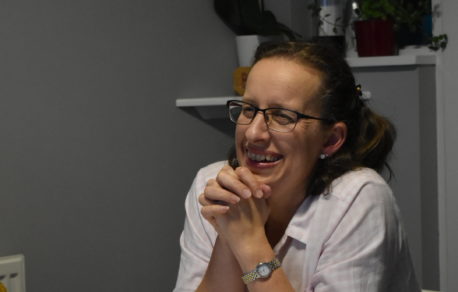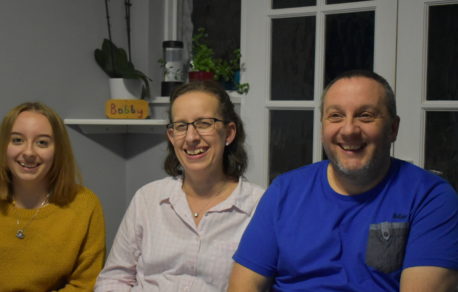My story of improving neurodiversity awareness in engineering
As we celebrate the launch of our brand-new Engineering Neurodiverse Futures support programme, Laura Norton – Head of Equality, Diversity and Inclusion at the IET – joins us to discuss how the IET have broadened their focus on neurodiversity, and why our new programme of support is so important for all IET members, as well as the wider engineering community.
Embedding neurodiversity within the IET
At the IET, equality, diversity and inclusion (ED&I) are core to our values and beliefs, and run throughout our organisational strategy.
As the Head of Equality, Diversity and Inclusion, I know how important it is that we build an inclusive culture that inspires, engages and celebrates the diversity of our members, volunteers, colleagues and the wider engineering and technology community.
I’m proud of our EDI Strategy which sets out the rationale for embedding EDI across the IET, and focuses on multiple strands – including neurodiversity.
Neurodiversity describes the idea that people experience and interact with the world around them in different ways.
Everyone has a right to an education in engineering and technology, and to be involved and succeed in the sector.
I’m sure we all agree that this is morally right, but more than that – it’s good for engineering. In order to improve our world and advance excellence in solving the global challenges we currently face, diversity of thought, approach and knowledge are vital.
We know that neurodiverse engineers have so much to bring to the sector. Engineers solve problems, and what could be better than looking at those problems with different approaches?
Building neurodiversity understanding and awareness
Before I joined the IET, the EDI Manager – encouraged by some volunteers – put out a request for individuals with lived experiences of neurodiversity who might be interested in forming an IET Dyslexia Focus Group.
The first meeting of this group was held in February 2020 at the IET’s Savoy Place headquarters in London, with several volunteers who’d signed up to discuss first steps and goals for the year.
The aim of the group was to support IET members, volunteers and members of the wider engineering community living with dyslexia to share good practice and promote the many, often overlooked benefits that neurodiversity can bring to the STEM profession, as well as highlighting some of the barriers that individuals with dyslexia may face.
Now, in 2022, this group focuses on neurodiversity more broadly. Its purpose is to support neurodiverse engineers and technologists, improve awareness of neurodiversity, and advise on improving processes that impact membership, career and wellbeing within the IET.
Recently, we were pleased to welcome Foothold to one of our meetings to discuss ideas as they worked to develop their new and exciting Engineering Neurodiverse Futures programme.
One thing the group has discussed is waiting times for diagnosis. It’s shocking to hear how long it can take for neurodiverse people to be diagnosed, with one member waiting six years for a formal diagnosis.
That’s why it’s great to hear that through this brand-new programme, Foothold will be supporting aspiring student and apprentice engineers to access these diagnoses sooner.
Understanding neurodiversity in engineering
It is still unclear how many people are neurodiverse. According to ACAS it is estimated that around 1 in 7 people worldwide (more than 15% of people in the UK) are diagnosed as neurodivergent, but there are varying figures from different sources.
For many, it’s still an unknown subject, with some people not wanting to seek diagnosis for fear of stigma, or struggling to access a formal one.
As a professional body, the IET can help to build a better understanding of the extent of neurodiversity in the engineering and technology sector.
In an IET 2022 volunteer EDI survey, 9% of volunteers identified as neurodiverse and another 10% said they were unsure if they were neurodiverse.
This is by no means the full picture, but as we continue to improve our knowledge and data collection, we will be able to gain a deeper awareness of the role neurodiversity plays in engineering.
Empowering aspiring and established engineers to thrive together
If there’s one thing to remember however, it’s that differences are not deficits. There is no right way of thinking, learning and behaving – we’re all different.
There is still so much to be done, so many ways in which we can help improve our understanding and our own processes at the IET, but I’m very thankful to our members and volunteers who are helping us along that journey, by teaching us more about how, in the right environment, neurodiversity can bring many significant advantages.
By creating more inclusive learning environments and harnessing everyone’s unique capacity for learning, creativity and innovation, together we can engineer a better world.
Start #EngineeringYourWay today
To find out more about our Engineering Neurodiverse Futures programme and how it can benefit you, join our Differently Wired Hub for free today.
To read the IET’s EDI Strategy please click here.
For any IET members who wish to join the neurodiversity member network, please contact [email protected].



